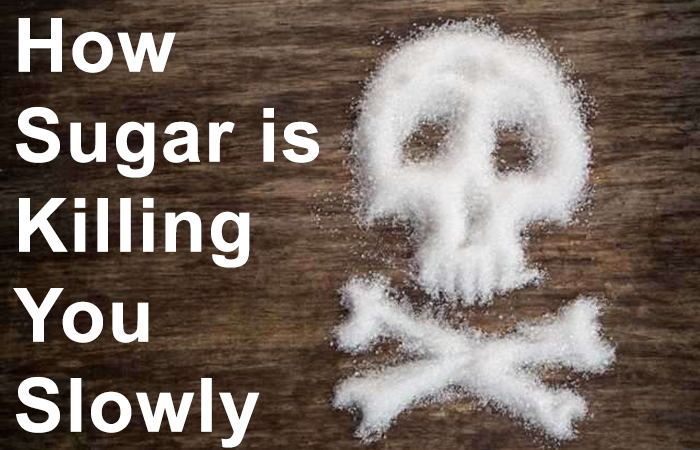
Sugar, once considered a rare and precious commodity, has now become a pervasive and addictive ingredient in our modern diet. While sweet treats may bring us momentary pleasure, the excessive consumption of sugar has devastating effects on our health. Beyond its impact on weight gain and tooth decay, scientific evidence reveals that sugar is stealthily contributing to a wide range of chronic diseases, slowly diminishing our overall well-being. In this article, we will explore the insidious ways sugar is harming our bodies and the steps we can take to break free from its grip.
The Sugar-Health Connection
Excessive sugar intake has been linked to a plethora of health problems, including obesity, type 2 diabetes, heart disease, and certain types of cancer. When we consume sugary foods or beverages, our bodies experience rapid spikes in blood glucose levels, leading to a surge of insulin production. Over time, this constant strain on the pancreas can lead to insulin resistance, a condition where cells become less responsive to insulin's effects, resulting in elevated blood sugar levels and an increased risk of diabetes.
Obesity and Metabolic Syndrome
One of the most well-established links between sugar and health is its role in obesity and metabolic syndrome. High sugar consumption can lead to weight gain as sugary foods provide little satiety and are often accompanied by excess calories. Furthermore, sugar triggers the release of dopamine in the brain, promoting addictive-like behaviors, leading to cravings and overconsumption.
Metabolic syndrome, a cluster of conditions that includes increased blood pressure, high blood sugar, excess body fat, and abnormal cholesterol levels, is closely associated with excessive sugar intake. This dangerous combination significantly raises the risk of cardiovascular diseases, stroke, and other chronic health issues.
Liver Damage
When we consume sugar, the liver converts it into glucose, which is then used as energy for our bodies. However, when we consume more sugar than our bodies can handle, the excess glucose is stored as fat. Over time, this can lead to non-alcoholic fatty liver disease (NAFLD), which can progress to more severe conditions such as cirrhosis and liver failure. Even individuals who do not exhibit signs of obesity may develop fatty liver disease due to excessive sugar intake.
Cardiovascular Health
Studies have found a direct link between high sugar consumption and an increased risk of heart disease. Excessive sugar intake can raise triglyceride levels, lower "good" HDL cholesterol, and promote inflammation within the arteries. This combination of factors contributes to atherosclerosis, a condition characterized by the buildup of plaque within arterial walls, potentially leading to heart attacks and strokes.
Tooth Decay and Oral Health
Sugar's role in tooth decay is well-documented. When we consume sugary foods and drinks, the bacteria in our mouths convert the sugar into acids, which erode tooth enamel and lead to cavities. Poor oral hygiene, coupled with excessive sugar consumption, can have long-lasting effects on dental health, causing pain, tooth loss, and expensive dental procedures.
Breaking Free from the Sugar Trap
Reducing sugar consumption is crucial for regaining control of our health and well-being. Here are some steps to help break free from the sugar trap:
Educate Yourself: Familiarize yourself with the sugar content in the foods and beverages you consume regularly. Read labels carefully and opt for products with lower sugar content.
Gradual Reduction: Avoid drastic changes, as they may lead to feelings of deprivation. Gradually reduce sugar intake to allow your taste buds to adjust.
Mindful Substitutions: Replace sugary treats with healthier alternatives such as fruits, nuts, and natural sweeteners like stevia or honey in moderation.
Cook at Home: Preparing meals at home allows you to control the ingredients and reduce sugar levels in your diet.
Stay Hydrated: Opt for water or herbal teas over sugary beverages like soda or fruit juices.
Sugar's sweet taste and its pervasive presence in our diets can make it challenging to resist. However, the long-term consequences of excessive sugar consumption should not be ignored. By understanding the impact of sugar on our health and making conscious choices to reduce our intake, we can take significant steps towards living a healthier and more fulfilling life. Empower yourself with knowledge, break free from the sugar trap, and embrace a lifestyle that nourishes your body and mind. Your future self will thank you for it.
Established in 2013, FamilyNeeds.net is connected to your lifestyle and everyday life. Publish reviews of your life, style, fashion and essentials.